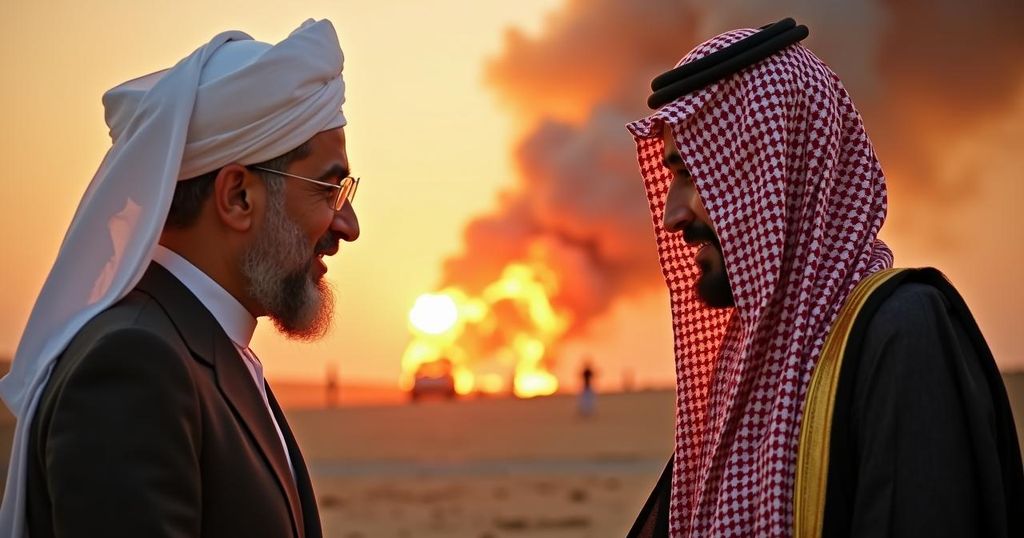Iran has warned Saudi Arabia of potential attacks on its oil facilities should Gulf states facilitate Israeli strikes against Iran. This threat could jeopardize the fragile truce established in 2023, amidst escalating regional tensions and proxy conflicts. The implications for global oil prices and Middle Eastern stability are significant as the situation develops.
Recent developments indicate that Iran has issued threats to attack Saudi oil installations in retaliation against any potential endorsement of Israeli military actions by Saudi Arabia. This warning was communicated by Iranian Foreign Affairs Minister Abbas Araghchi during his visit to Riyadh. According to authoritative reports, if Gulf states permit Israel to utilize their airspace for operations aimed at Iran, it could be perceived by Iran as an act of war. Araghchi specifically conveyed that Iranian-supported militias in Iraq and the Houthi movement in Yemen may be deployed as a defensive measure against Saudi Arabia. Analysts note that this fragile truce, which was brokered with facilitation from China in 2023, may collapse amidst rising regional tensions. Iranian sources have divulged that if Gulf states allow Israeli attacks, such actions would have far-reaching consequences, possibly leading to Iranian reprisals not just against Saudi Arabia, but also against other nations such as Jordan, the United Arab Emirates, and Qatar—countries that host US military bases. The backdrop of escalating conflict includes recent Israeli operations against Iran-affiliated Hezbollah in Lebanon and Iran’s missile retaliation against Israel on October 1. Previous threats against Saudi Arabia have indicated a long history of proxy warfare between the two nations, notably waged in Yemen, which has seen Iranian backing of the Houthi rebels against Saudi-supported government forces. Despite these tensions, the overarching goal of the Saudi leadership—particularly under the guidance of Crown Prince Mohammed bin Salman—is to stabilize the region to facilitate economic reform as part of the Vision 2030 initiative. The truce’s primary component involved a mutual commitment where Iran would cease support for Houthi attacks and Saudi Arabia would refrain from backing Sunni insurgents in Iran. Recent market dynamics indicate that any impact on Saudi oil facilities could have significant implications for global oil prices, as Saudi Arabia is the leading exporter of crude, with Brent crude prices experiencing a notable rise due to geopolitical uncertainties.
The backdrop of the Iranian-Saudi tensions is defined by a long-standing proxy war, primarily focused in regions like Yemen, where both nations have had conflicting interests. The fragile truce established in 2023 was seen as a step towards resolving these historical hostilities through diplomatic engagement facilitated by China. The complexities are further accentuated by external factors such as the involvement of Israel and the United States in the region, which increase the stakes for both Iranian and Saudi operations and responses. This geopolitical interplay highlights the volatile nature of Middle Eastern politics and the risks of escalation that threaten the delicate balance of power.
In summary, Iran’s recent threats toward Saudi Arabia underscore the potential for renewed hostilities that could unravel the fragile truce brokered in 2023. The geopolitical landscape remains tense, with the threat of conflict posed by potential Israeli air strikes altering the dynamics between these regional foes. The implications for global oil markets and regional stability are profound, calling attention to the need for continued diplomatic efforts to de-escalate tensions and promote peace in the region.
Original Source: www.businessinsider.com






